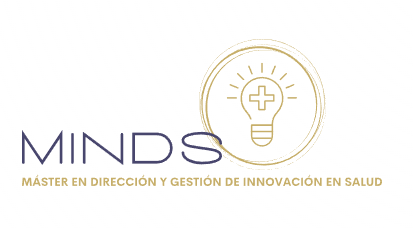Pint of Science is a science festival that aims to communicate contemporary scientific developments to the general public in an interesting, engaging and approachable way by bringing scientists to the pub and other accessible places. This festival is held simultaneously in bars around the world for three days.
 On this science festival takes part research centers, universities and other entities of the scientific community. In Spain, Pint of Science has the collaboration of researchers from centers such as the CSIC, Instituto de Astrofísica de Andalucía, Ramón y Cajal Institute, or members from different scientific societies, among many others.
On this science festival takes part research centers, universities and other entities of the scientific community. In Spain, Pint of Science has the collaboration of researchers from centers such as the CSIC, Instituto de Astrofísica de Andalucía, Ramón y Cajal Institute, or members from different scientific societies, among many others.
The Pint of Science 2017 talk program covers a wide range of topics: from the brain to the universe; from the human body to nature or from technology to the social sciences. In this edition, we will talk about classical scientific topics, such as galaxies, atoms, cells, bacteria, nanotechnology, insects, neuroscience, or energies, etc.
On this edition of Pint of Science in Santander, researchers from the University of Cantabria, IBBTEC and IDIVAL participate.
• Tuesday 16 May at 8pm
José Ramos Vivas, IDIVAL researcher presents “Climate Change + Infectious Diseases = Disaster2“ at the Rubicón Bar in Santander.
The investigations in different fields that have been used to determine the relationship between climate change and infectious diseases, whether emerging, re-emerging or new, show that morbidity and mortality rates are increasing and will increase more in the future. So then, we can conclude that due to climate change, we must be prepared for substantial changes in the distribution and incidence of infectious diseases.
• Wednesday 17 May at 8pm
María José Marín Vidalled, coordinator of Biobank Valdecilla, presents “Your samples … Our treasure” in the Little Bobby of Santander.
The great advances of medicine over the last years have been possible thanks to the donation of patient samples. These samples are invaluable because they are the raw material needed to produce knowledge about diseases and the search for better treatments. Hospital biobanks are responsible for creating large collections of quality samples to be used in different research projects, ensuring their good use and the rights of donors.
Mónica López Fanarraga, from the Department of Molecular Biology of the University of Cantabria and researcher at IDIVAL, introduces us in “Amazing trip to nanoscale therapies”
Fifty years ago Isaac Asimov's science fiction novel “Fantastic Voyage” describes how a group of scientists are reduced to a microscopic fraction of their original size, sent in a miniaturized atomic sub through a dying man's carotid artery to destroy a blood clot in his brain. As with many other predictions of science fiction, reality has managed to meet some of these expectations in nanomedicine, an emerging reality in diagnostic and therapeutic systems still limited by technology but that will be implemented in the coming years.
More information:
Pint of Science (link)

 On this science festival takes part research centers, universities and other entities of the scientific community. In Spain, Pint of Science has the collaboration of researchers from centers such as the CSIC, Instituto de Astrofísica de Andalucía, Ramón y Cajal Institute, or members from different scientific societies, among many others.
On this science festival takes part research centers, universities and other entities of the scientific community. In Spain, Pint of Science has the collaboration of researchers from centers such as the CSIC, Instituto de Astrofísica de Andalucía, Ramón y Cajal Institute, or members from different scientific societies, among many others.



















